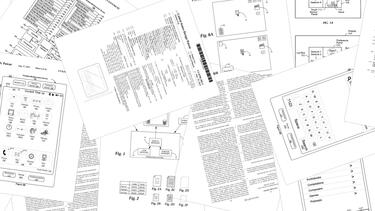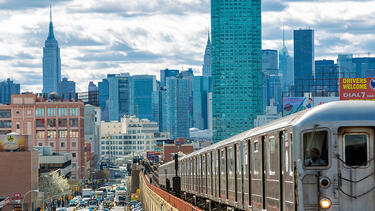All Insights Articles
Corruption Decreases Technology Adoption in Emerging Markets
Technology adoption is lower in emerging markets with corrupt business environments, and higher in those with good transparency and enforcement, according to a new study forthcoming in Marketing Science.
Can We Have Economically Secure Retirements?
The end of defined-benefit pensions and a volatile stock market have made many Americans skeptical that they can retire comfortably. Is a new model emerging for how we plan for retirement? A panel of experts and practitioners talks about policies to help us bolster our retirement savings.

Are ‘Patent Thickets’ Smothering Innovation?
One analysis estimated that a smartphone is covered by 250,000 patents. As technology grows increasingly complex, companies must navigate a web of intellectual property protections. Are innovation and competition suffering from the race to create enormous patent portfolios? Professor Stefan Wagner of the European School of Management and Technology (ESMT), a member of the Global Network for Advanced Management, talked with Yale Insights about the consequences of “patent thickets.”

Community Motivation and Subsidies Increase Toilet Use in Developing World
A combination of community motivation and subsidies targeted to the poor is the most effective way to increase toilet ownership and use, and decrease open defecation, in developing countries, according to a new study published in the journal Science.
How Will E-Commerce Transform the Shipping Industry?
The past four decades of globalization have been a “golden era of global trade,” according to Rajesh Subramaniam, head of marketing and communications at FedEx, and have seen enormous growth for shipping companies. But the growth of online commerce poses new and complex questions for the industry.
Can You Get Higher Returns from Low-Risk Stocks?
The concept of high-risk, high-return is a bedrock belief in finance, confirmed by decades of empirical data. But when Prof. Roger Ibbotson dug deeper into the data, things started to look a little different.
Can Cross-Sectoral Collaboration Reverse the Trend toward Income Inequality?
Income and wealth inequality in the U.S. has become a topic of widespread concern and discussion. A recent panel of Yale SOM alumnae posited that action from the federal government is unlikely. But the panelists found reason for hope in examples of the public, private, and nonprofit sectors collaborating to address the nation’s wealth gap.

How Big Mac Reacts to Attack: Recovering From Missteps
In a Chief Executive magazine commentary, Professor Jeffrey Sonnenfeld applauds McDonald’s for being forthright about recent performance problems at the company and their plan to address them.
What Can Game Theory Tell Us about Iran’s Nuclear Intentions?
What’s the best way to manage a secret project—one whose stakes, whether diplomatic or business, are very high? And what do your actions tell your opponents about your true intentions?
Are Elections Imperiling Our Democracy?
Every Election Day, politicians sporting flag pins step into voting booths and come out proclaiming their pride in the democratic process. But take a step back and things don’t look so rosy. Between badly run elections and a new wave of “dark money” entering campaigns, reformers fear that the very nature of our democracy is at risk.